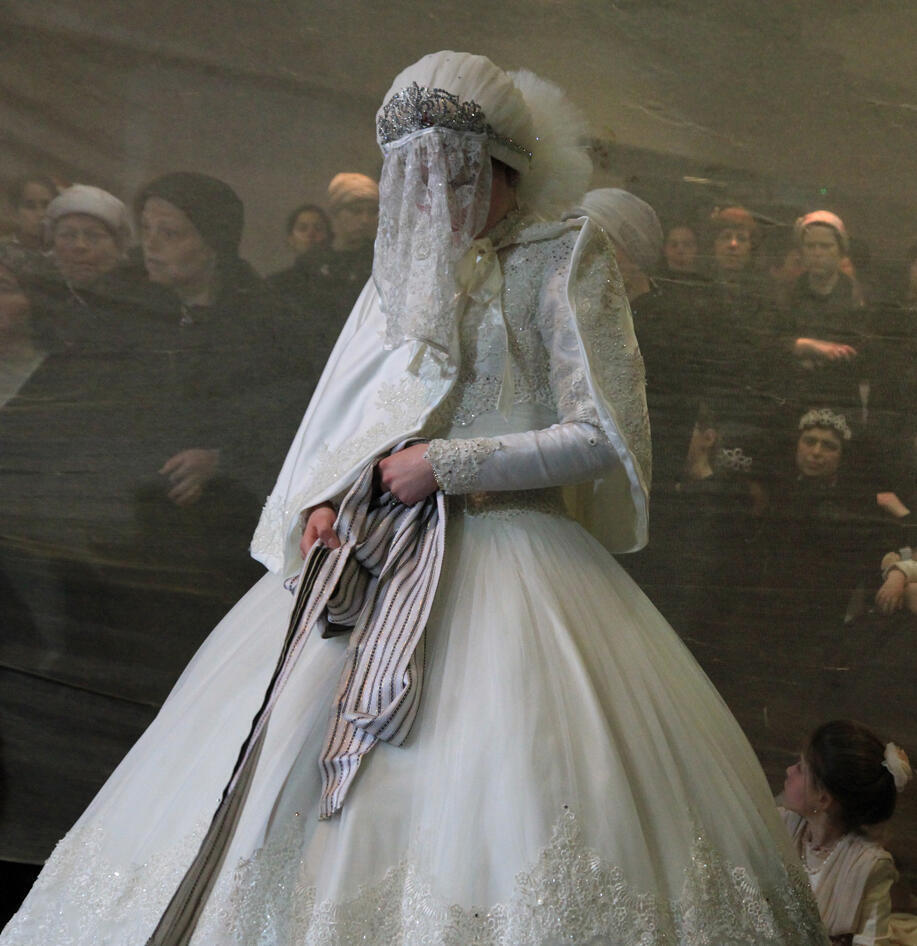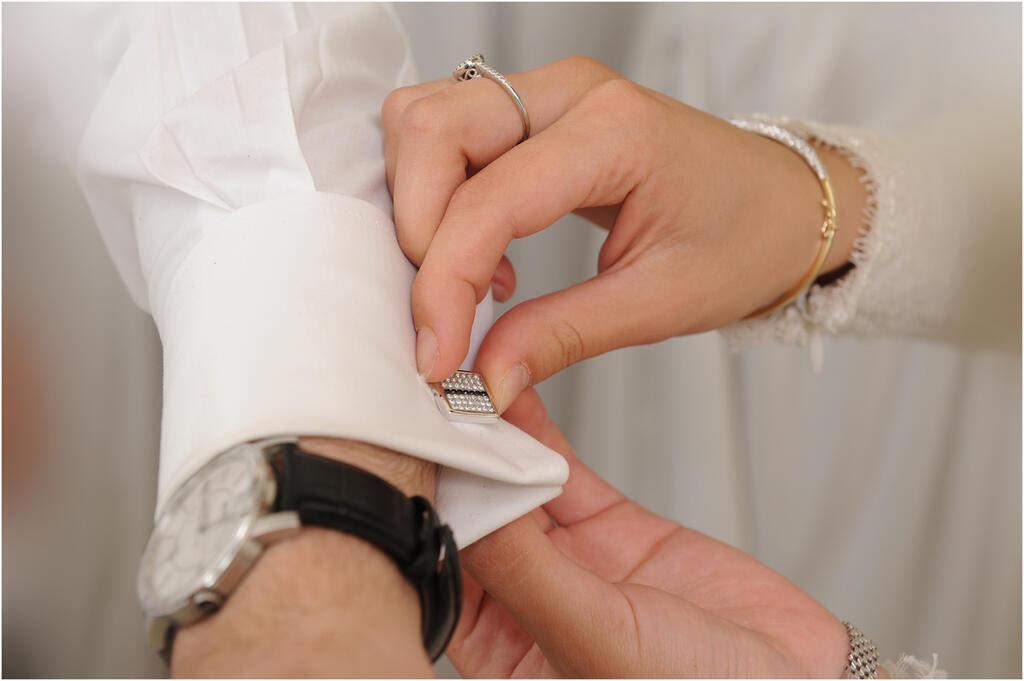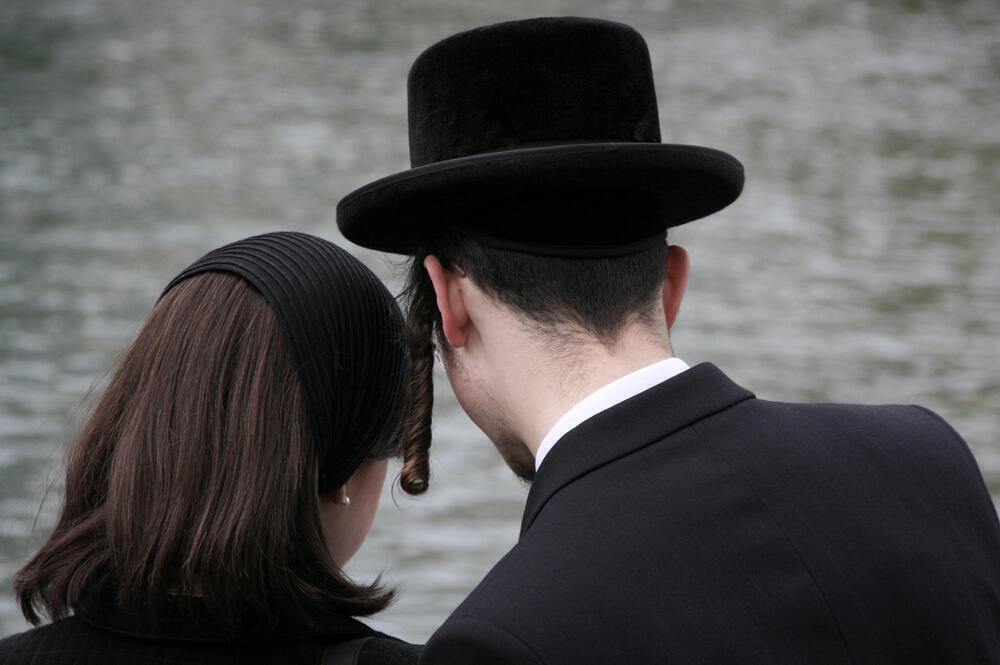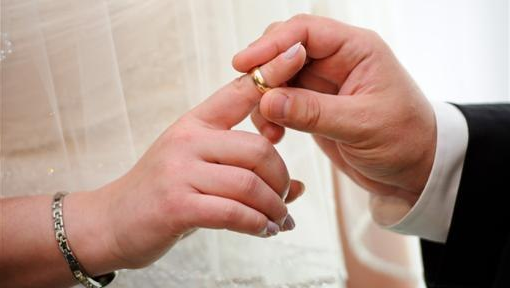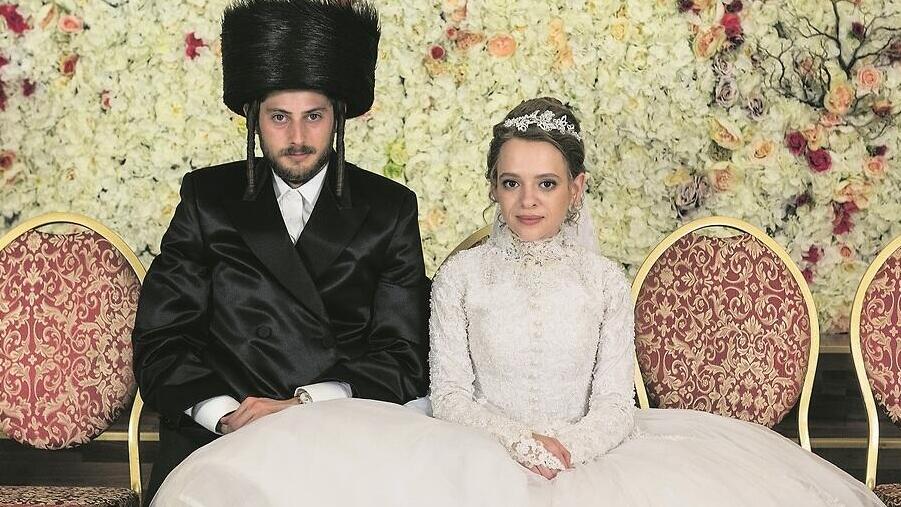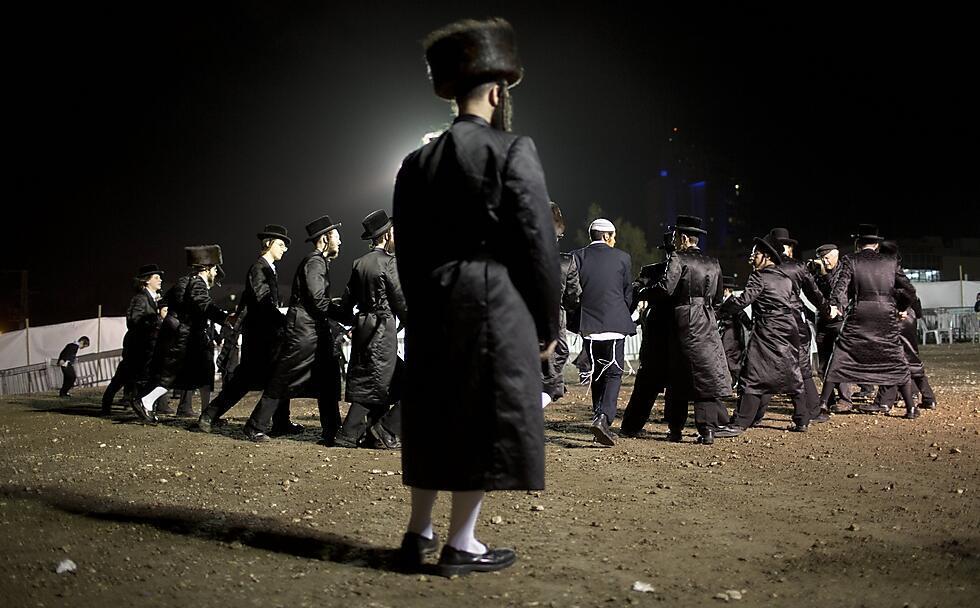Getting your Trinity Audio player ready...
Racheli married a Yeshiva student 15 years ago when she was only 20 years old. Although she was raised in what she described as a relatively open-minded ultra-Orthodox home, she knew nothing about intimacy between men and women when she entered the marriage.
She had never seen a film or been exposed to any other means of information that would tell her about intimacy or sex.
Her husband was the first man she had ever known outside her family and until she sat down with the Haredi marriage guide, a woman tasked with preparing young brides for married life, had never been told about the birds and the bees.
By her own admission, she was as naïve as can be and the extent of her ignorance was only matched by her horror at her first sexual experience.
Gili also came into her marriage with very little knowledge on the subject at all.
"I grew up in Bnei Brak's Haredi community," she says. "I did hear things and did read some material that was not strictly Haredi. The girls at school talked about sex and what we could expect once we were married, but they were mostly terrified. I was intrigued and looked forward to my wedding night."
But Gili lacked basic knowledge about the sexual act and was given no preparation ahead of her nuptials. Like Racheli, her friend, she too found her married life soon turned into a battlefield.
The two women chose to be interviewed after years of silence, as part of a project Ynet shared with The Movement for Public Journalism, a non-profit aiming to create a pluralistic, fact-based, inclusive conversation and to use journalism as a public service. They then discovered they were not alone in their plight.
Racheli and Gili now wish to share their experiences with others in order to perhaps bring about change in their society and break the silence surrounding the subject of sex for new ultra-Orthodox brides.
"I knew babies were not delivered by the stork," Racheli says, "but I did not know what exactly happened to make and deliver babies."
Like all young Haredi girls, she met with a bridal guide ahead of her marriage. That woman was tasked with explaining the duties of ultra-Orthodox women once they were married, according to the Jewish law – the Halacha.
Those duties included restrictions on physical contact during menstruation and before ritual cleansing, but did not include a practical explanation of the sexual act. Racheli was only told that she must have sexual relations with her husband on their wedding night.
Her husband was also uneducated in the matter and the couple was unable to consummate their marriage for the first three months. "We just had no idea what we were supposed to do," she says. "We did not know what goes where and had no one to ask. It was ridiculous," she says.
Racheli finally decided to approach her lecture from the teachers' seminary where she studied with her problem. The lecturer invited her to her home and showed her the female and male organs and how they were meant to fit.
"Even then, there was no instant magic," she says. "By then, I was full of anxiety and afraid of the pain I was told to expect. It took a while before I could feel any pleasure," she says.
Racheli says her husband felt he had to ask his rabbi before performing any kind of act, to be sure he was not violating some religious law.
"It was traumatic," she says. "You live with a man whom you don't really know and want to build a relationship with - but cannot."
She describes the first year of marriage as a fraud. "Outwardly we seemed fine, but I felt like a failure and that something was wrong with me," she said.
"When I finally opened up to other women, one told me she felt robbed of the first five years of marriage because of her and her husband's ignorance and because her husband insisted on getting his rabbi's approval all the time," she says. "I believe that had we been given the right guidance ahead of time, all this suffering could have been avoided."
Gili describes a similar tale, but hers had no happy ending.
"I had a romantic vision of my marriage," she says, "but on the first night, my dream came crashing down. There was so much pressure and I had so much to do. My mother gave me a skimpy nightgown and told me I must wear it, but it was a cold night and I was not comfortable. I put on my warm PJs and told my husband that we should talk for a while first. We've never so much as held hands before," she said.
They talked and kissed that first night but on the next day, Gili's mother insisted on knowing that everything went well. "The pressure was mounting. I told her we were not there yet," she says. "We tried to get closer each night, but I felt my body contract."
Gili suffered from vaginismus, the body's automatic reaction to the fear of all types of vaginal penetration. She screamed in pain every night for months on end and even told her husband to ignore her pain and force himself into her, but he refused.
When she shared her trouble with her mother, the response she got was "what is your problem? Everyone does this. Just relax".
"I felt like a complete failure. I was 20 and feared divorce more than anything," she says. "We both suffered. Intimacy became associated with pain."
The couple sought the help of doctors and therapists, including outside their restrictive religious world. "The system is not to blame for my vaginismus, but I heard from therapists I went to, that it is a characteristic of conservative societies - religious Jewish and Muslim women," she says.
Gili finally gave up and decided that if her body was refusing to allow penetration, she would not force it.
Desperate for children, the couple injected sperm into her using a syringe, and she fell pregnant. Although she feared childbirth after her experiences, she said giving birth was a relatively good experience.
The couple divorced five years after they were married. Gili has since remarried and now enjoys happy sex life with her second husband.
"The problem is societal," Racheli says. "You cannot thrust two young ignorant people together and expect them to overcome so many inhibitions and fears. I wanted a marriage of love and was told that those feelings would follow. They did finally, but there was so much suffering getting there. I know things could be done better," she says.
Avigail Molcho-Gilat, a physiotherapist of the pelvic muscles, says there are winds of change in the ultra-Orthodox community.
"Women were given hormones to stop their period before the wedding in order to ensure they were 'pure' on their wedding night," Molcho-Gilat says.
According to her, what makes it so difficult for ultra-Orthodox couples is getting to know each other on the wedding day without prior physical contact that builds the relationship and precedes sex.
"These are boys and girls who have never touched a member of the opposite sex and have often been given poor or insufficient bridal guidance. Today many are told not to have sex on the first night, or even the first week, in order to avoid pressure and allow time for intimacy to form," she says.
"Men also have sexual needs beyond penetration and are ill-prepared and often unable to perform. There should be more dialogue between those preparing the men and those preparing the women for marriage," she says.
But the problem is not only on the wedding night," she says. "Some in the ultra-Orthodox community are very ignorant. I had one woman come to me having already given birth, with no knowledge of the female body.
"In another case, I was prevented from discussing sex with the young bride by her mother who said it was wrong to talk about it," she says.
"Women must be prepared for physical relations. If they are not, they may shut down. The sexual act requires physical exposure and willingness, and if women are not in touch with their bodies, the transition into married life can be very extreme."
Chavi Bluestein, a popular bridal guide from Bnei Brak, met two women who had divorced because of problems in intimacy with their husbands when she was studying for an undergraduate degree in psychology.
She decided to delve deeper into the subject and took up a course for guides of ultra-Orthodox brides. "I meet girls who do not understand the reproductive process," she says. "I don't mind things remaining unsaid, but this is something they must know long before they enter marriage," she says.
7 View gallery


An ultra-Orthodox marriage ceremony where the bride and the rabbi dance attached only by a string
(Photo: AP)
"When planning a wedding, brides are preoccupied with the wedding dress, venue, catering and the likes. They do not have time for a crash course in human sexuality. They are also bombarded with the religious dos and don'ts of married life and cannot be expected to internalize everything," she says.
"The women who provide these brides with guidance are themselves untrained in how to communicate knowledge about intimacy between men and women. They are even unable to detect signs of previous sexual assault or anxieties," she says.
"Today, more choose to hold group lessons with a number of brides but that is a mistake because when a question arises, girls may be too embarrassed to ask anything in front of the rest of the group," she says.
She adds that men are also unprepared, receiving only a technical explanation of the sexual act. "They do not know how to arouse their wives. I have not heard many speak about enjoyment in sex. The main object is procreation," she says.
"One young woman told me she thought all the romantic stuff you see in movies was not for her kind and her duty was to have children. The pleasure part seems immodest, so women were not told about how to enjoy sex."
Chavi says men need guidance after they are married as well. "Like driver's ed," she says.
"There is a theoretical test and practical lessons, but after that, there is also an experienced driver who must provide guidance during the license test," she says.
"Men often come to me with their brides, very eager to learn," she says. "Even those who are very conservative and never look at women directly. It is sad that most of them come only because they have problems in their marriage," she says.


